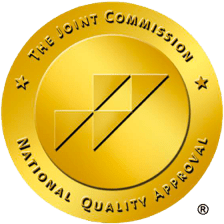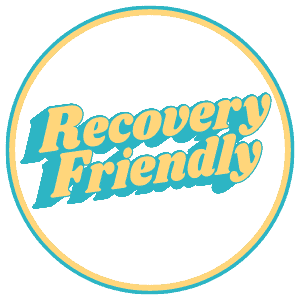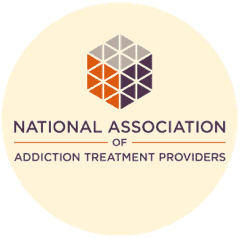Alcohol Addiction
Alcohol is one of the easiest drugs to access and it’s also one of the most dangerous. If you or a loved one is struggling with alcohol addiction, help is available to support your recovery.
Since alcohol is a large part of our culture, it can make it difficult to know if you have an alcohol addiction. Behaviors that feel unhealthy and toxic to your life can even begin to feel normal and socially accepted. At Next Step Recovery in Asheville, NC, we provide patients with alcohol addiction diagnosis and treatment options to reach long-term, lasting sobriety.
What is Alcohol Addiction?
Alcohol addiction, also known as alcohol use disorder, is a chronic disease that creates a reflexive dependency on alcoholic drinks. A combination of physical, emotional, and mental symptoms can trigger the compulsive need to drink alcohol. Without professional treatment at a rehab facility, addiction will continue despite causing harm to your social and personal health.
Alcohol addiction can be confused with isolated moments of heavy drinking. But a true dependency can do much more damage than a few excessive nights of alcohol consumption. In fact, alcohol use is one of many symptoms linked to deeper issues.
Addiction can damage relationships, cause financial difficulties, and disrupt every area of your life.
What Causes Alcohol Addiction?
Addiction comes from a combination of underlying issues with your mind and biology. Some factors leading to alcohol addiction can include one or more related issues:
Heredity: You might be at risk of genetic alcoholism if any of your relatives have a dependency. Alcohol use disorders can be passed in genes around 55% of the time.
Physical dependency: Alcohol affects your biology by causing an imbalance. This causes a physical need for alcoholic drinks.
Co-occurring Disorders: Mental health conditions can fuel alcohol abuse and lead to alcohol dependence. These can include anxiety, depression, PTSD, eating disorders, and many others. Additionally, chronic states of stress or intense emotion are common triggers for coping with emotions and day-to-day life with alcohol. Some conditions might even hardwire you to compulsively drink.
Coping with Trauma: Intense mental “scars” can build unconscious triggers for coping. These unresolved issues can cause addictions to take hold, even from a young age. Abuse, violence, and neglect can also cause mental disorders to form.
Triggers for alcohol abuse stem from any mix of the above issues. As the condition goes untreated, these issues can begin to feed into each other for further complications. If you believe you have alcoholism, identifying your symptoms is the next step toward diagnosis and recovery.
Symptoms of Alcohol Addiction
Diagnosis usually begins with some behavioral or biological signs of addiction. However, alcohol dependency doesn’t always show in everyone the same way. Some individuals with alcoholism might drink every day, while others might binge drink one night and return to alcohol after a few days of very light drinking. Alcohol addiction can range from moderate drinking to excessive drinking.
Various alcoholic drinks can cause each person to act on their addiction differently. Additionally, developing tolerance over time enables some individuals to be able to control their behavior when drinking.
That being said, there are a few behaviors you might exhibit if you have an alcohol addiction:
- Drinking more alcohol over time
- Using alcohol more often over time
- Not experiencing “hangover” symptoms
- Only wanting to be in situations where you can access alcohol
- Increased sadness, guilt, anger, or anxiety
- Changes in your social life, such as conflicts or a decrease in contact
- Shame around your behaviors that leads to self-isolation
- Being unable to carry out work duties reliably
In the long run, the conditions around your addiction will continue to get worse.
Long-Term Effects of Alcohol Addiction
Without treatment, alcohol addiction can cause permanent damage to your life. This lifelong disease can impact your body, relationships, and the safety of others. Prolonged alcohol addiction can also be physically destructive to your organs.
Some serious health issues can include:
- Getting sick often due to a compromised immune system
- Increased fatigue, nausea, or swelling linked to liver disease
- Cardiovascular disease
- Cancer
- Cognitive decline
- Depression
- Anxiety
- Mental illness
- Social isolation
- Issues with sexual performance or functioning
- Homelessness
At its worst, an addiction to alcohol has led to grave results such as:
- Drunk driving deaths
- Suicide
- Homicide
- Organ failure
Since alcoholism is a disease, attempting to control it alone is usually not effective. Yet, this DIY mindset is how many affected people approach their condition. Treatment is important for not just yourself, but the safety of all those around you.
Alcohol Withdrawal Symptoms
Withdrawal symptoms from alcohol can be severe and cause serious health effects without medical supervision. Alcohol withdrawal symptoms can include:
- Headache
- Nausea
- Vomiting
- Dizziness
- Anxiety
- Irritability
- Sweating
- Increased heart rate
- Disorientation
- Tremors
- Seizures
- And many others
Outpatient Alcohol Addiction Treatment
At Next Step Recovery, we offer several outpatient treatment options for alcohol addiction. Each treatment program is tailored to fit the individual needs of our clients.
Intensive Outpatient Programs
At Next Steps Recovery, our Intensive Outpatient Program (IOP) gives patients the tools they need to transition. IOP works with patients leaving residential treatment or medical detox programs as they move to a three or five days per week program that offers comprehensive support to prevent relapse. This multi-treatment approach includes individual counseling, intensive group therapy, and 12-step immersion education to support life without alcohol abuse.
Substance Abuse Comprehensive Outpatient Treatment (SACOT)
Dual-Diagnosis Treatment
For clients managing alcohol addiction and mental health disorders, living without alcohol can feel impossible. Next Step Recovery’s dual diagnosis treatment focuses on the psychiatric conditions that lead to alcohol addiction and provides clients with the tools to manage their mental health without controlled substances. We also provide clients with relaxation techniques to manage mental health disorders (including anxiety), sleep hygiene techniques for insomnia, and many more tools to thrive without alcohol. Each patient’s individualized treatment plan targets their specific medical concerns and creates a path for recovery.
Get the Help You Need to Conquer Your Alcohol Addiction
When the challenges of overcoming alcohol addiction feel overwhelming, our team at Next Step Recovery is here to help. Patients in and around Asheville, NC, can benefit from our skilled, comprehensive care to overcome their addiction. Begin your new life free from alcohol by filling out our online contact form today.
Get Help Now
Fill Out The Form Below
or Call (828) 761-0722.
"*" indicates required fields
Get the Help You Need to Conquer Benzo Addiction
When the challenges of overcoming benzodiazepine addiction seem overwhelming, the professional team at Next Steps Recovery is here to help. Patients in and around Asheville, NC, can benefit from our skilled, comprehensive care to conquer addiction.
Begin your new life free from benzo addiction by filling out our online contact form today.

Medically Reviewed By Susan Stader MS, LCMH, LCAS, CCS
Susan Stader is the founder and director of Next Step Recovery and NSR of Asheville, an Intensive Outpatient Program and a Long-term Extended Care program in Asheville, NC. She received her Master’s in Community Counseling in 2004 at Western Carolina University and went on to get her licensure in addictions and mental health counseling. Susan believes that treatment should be gender-specific and offered in a small setting. Small recovery communities, such as hers, are more intimate and effective in overall client satisfaction and care.
Reach Out Today
Recovery is a lifelong journey, but you don’t need to take it alone. At Next Step Recovery, we give you the tools and support you need to get through early sobriety and find lasting healing. It is our goal to empower our patients to be their best selves and live the life they deserve.
If you have any questions about our programs, methods, insurance, or anything else, reach out to us today. We look forward to helping you to get started along the road to recovery!
Get in Touch Now
Take the Next Step Toward Recovery
"*" indicates required fields








